Five ways parliaments are acting on climate change
Read the key takeaways from UK Parliament’s event at COP26
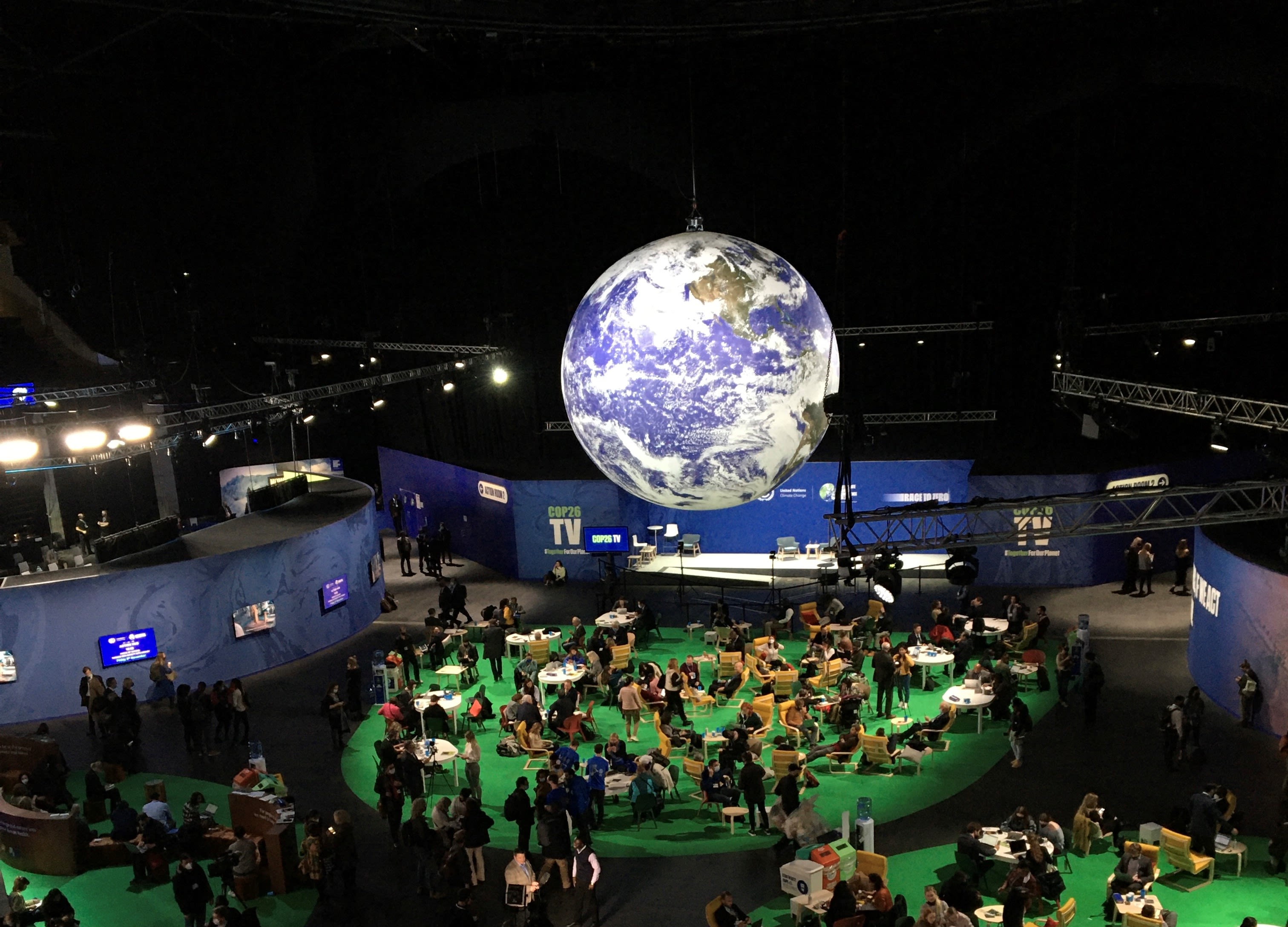
How are parliaments around the world scrutinising their governments’ climate change policies? This is what over 100 COP26 delegates came to find out as they gathered in Meeting Room 4 of Glasgow’s Scottish Event Campus (SEC) on Friday 5 November. COP26 was the largest international summit to ever take place in the UK, and on one of the greatest challenges facing the planet.
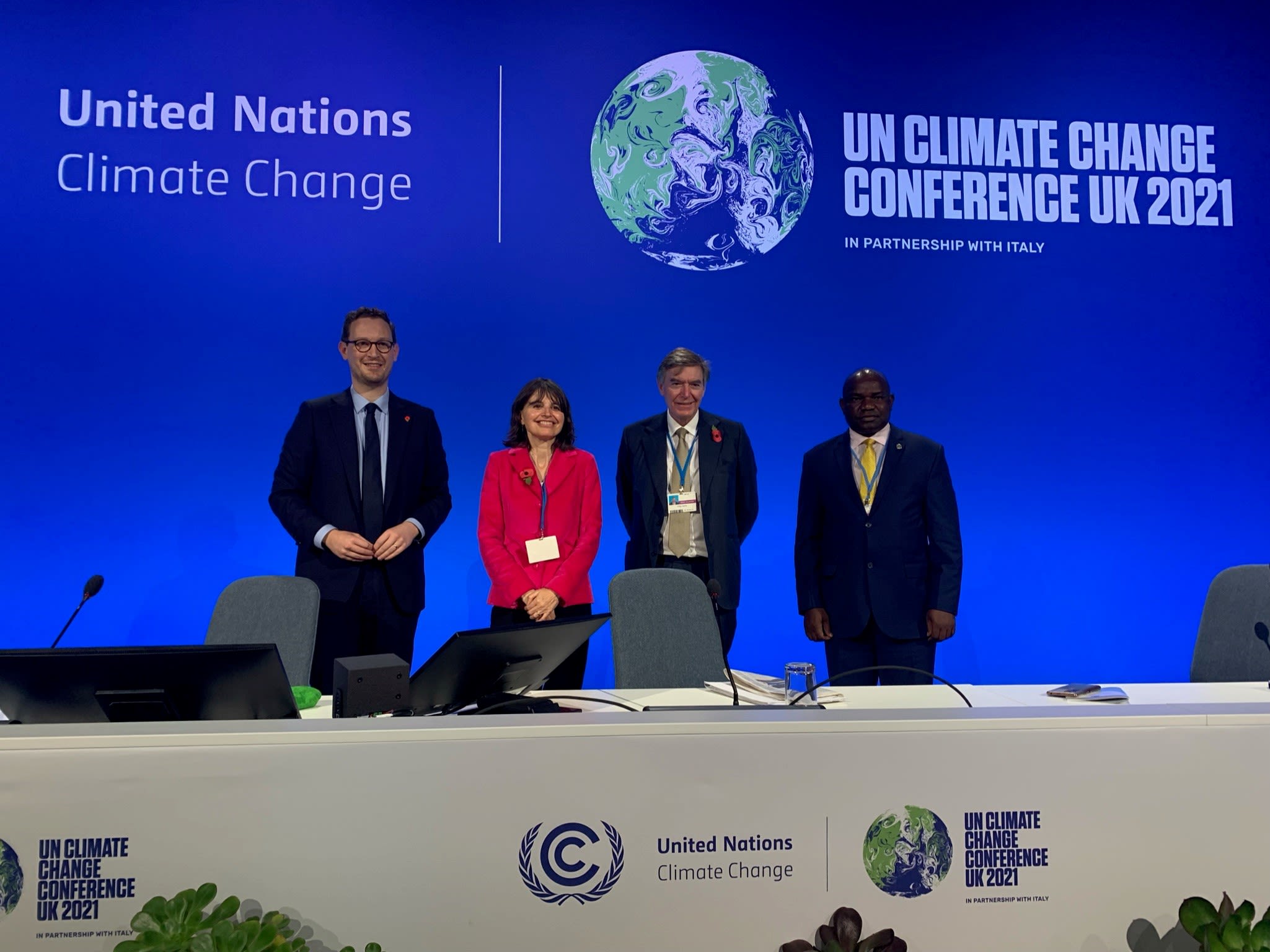
Speakers, from left to right: Darren Jones MP, Baroness Parminter, Philip Dunne MP, Lawrence Songa MP
Speakers, from left to right: Darren Jones MP, Baroness Parminter, Philip Dunne MP, Lawrence Songa MP
1. Empowering young people
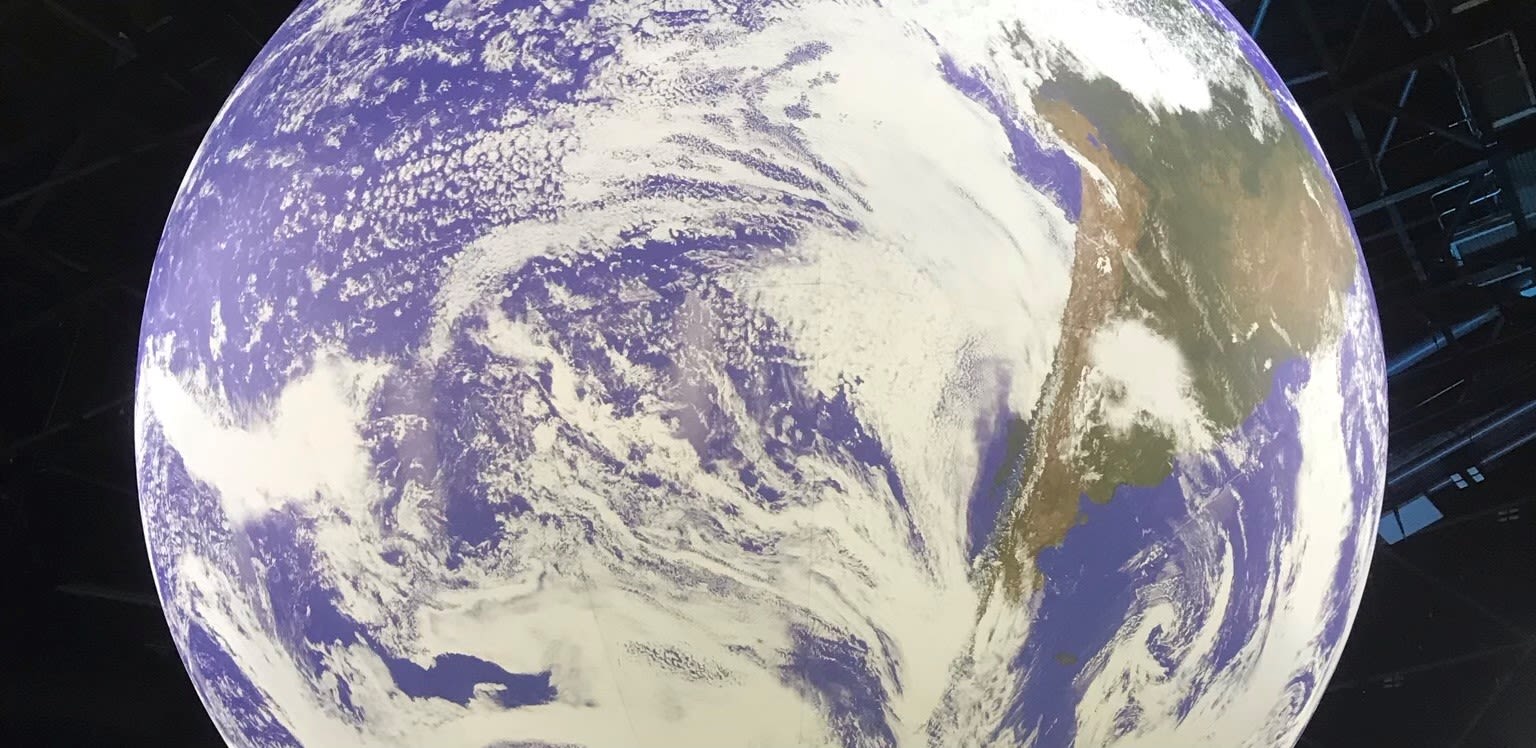
The event took place on youth and public empowerment day at COP26, and this theme was front and centre of the panel’s discussion.
“As parliamentarians, we must remember this is not the world we want to leave for our generations. It is time for change,” said Munaza Hassan MNA, Chair of the Committee on Climate Change in the National Assembly of Pakistan. Due to a last minute flight cancellation she spoke to the audience through a video recorded in Pakistan.
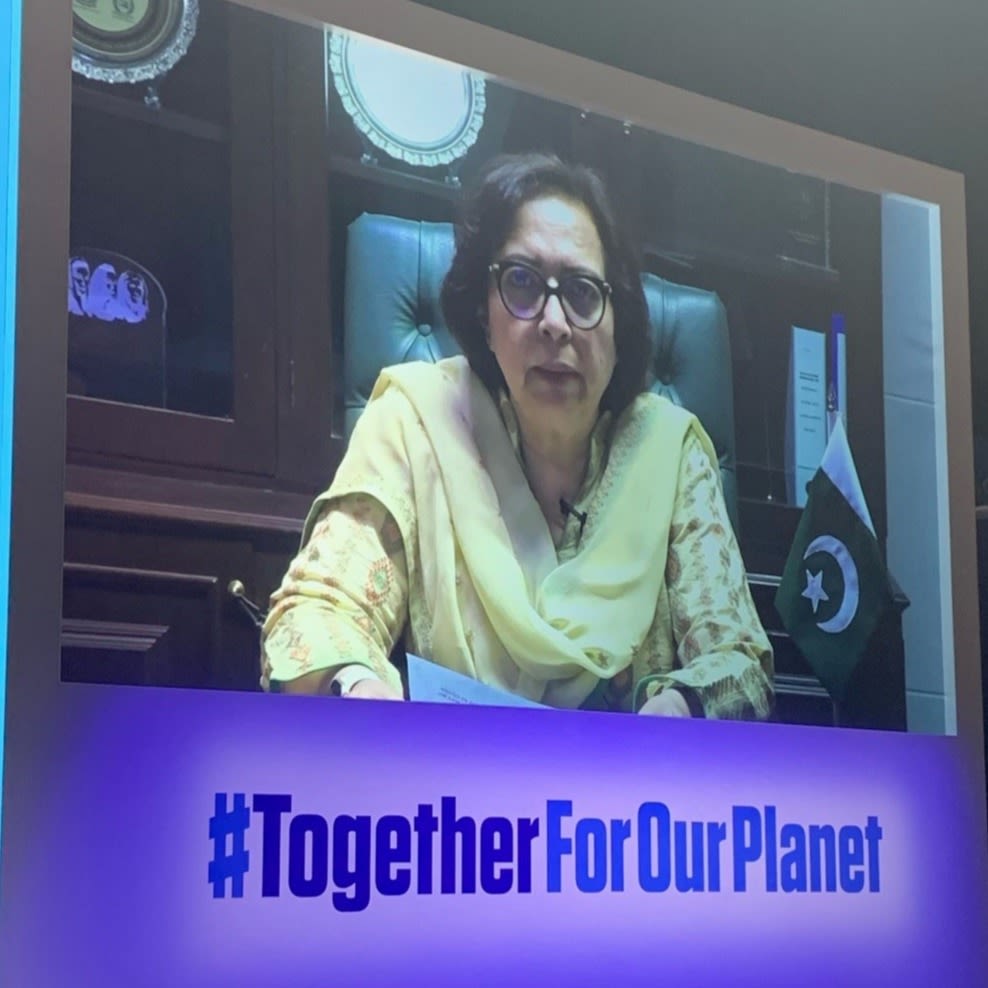
“It is our youth that can make society smarter, greater, inclusive and resilient.”
Ms Hassan called for a “reimagining” of education to prepare “the innovators of tomorrow” and ensure they have the right skills to be able to nurture the long-term health of the planet. Philip Dunne MP highlighted the successes of the UK House of Commons Environmental Audit Committee, which he Chairs, in pressing the UK Government to include more on sustainability in the national curriculum.
Audience members Pegah, from Youth and Environment Europe, and Steve Brine, a member of the House of Commons Digital, Culture, Media and Sport Committee were keen to hear how young people could best engage with national parliaments.
In response to this, Baroness Parminter, who was chairing the event, announced the launch of the Lords Environment and Climate Change Committee’s pioneering youth panel who will advise the Committee on lines of inquiry and what questions they should ask of government ministers.
The panel of committee chairs agreed young people must be brought into decision-making in parliament.
2. Asking challenging questions
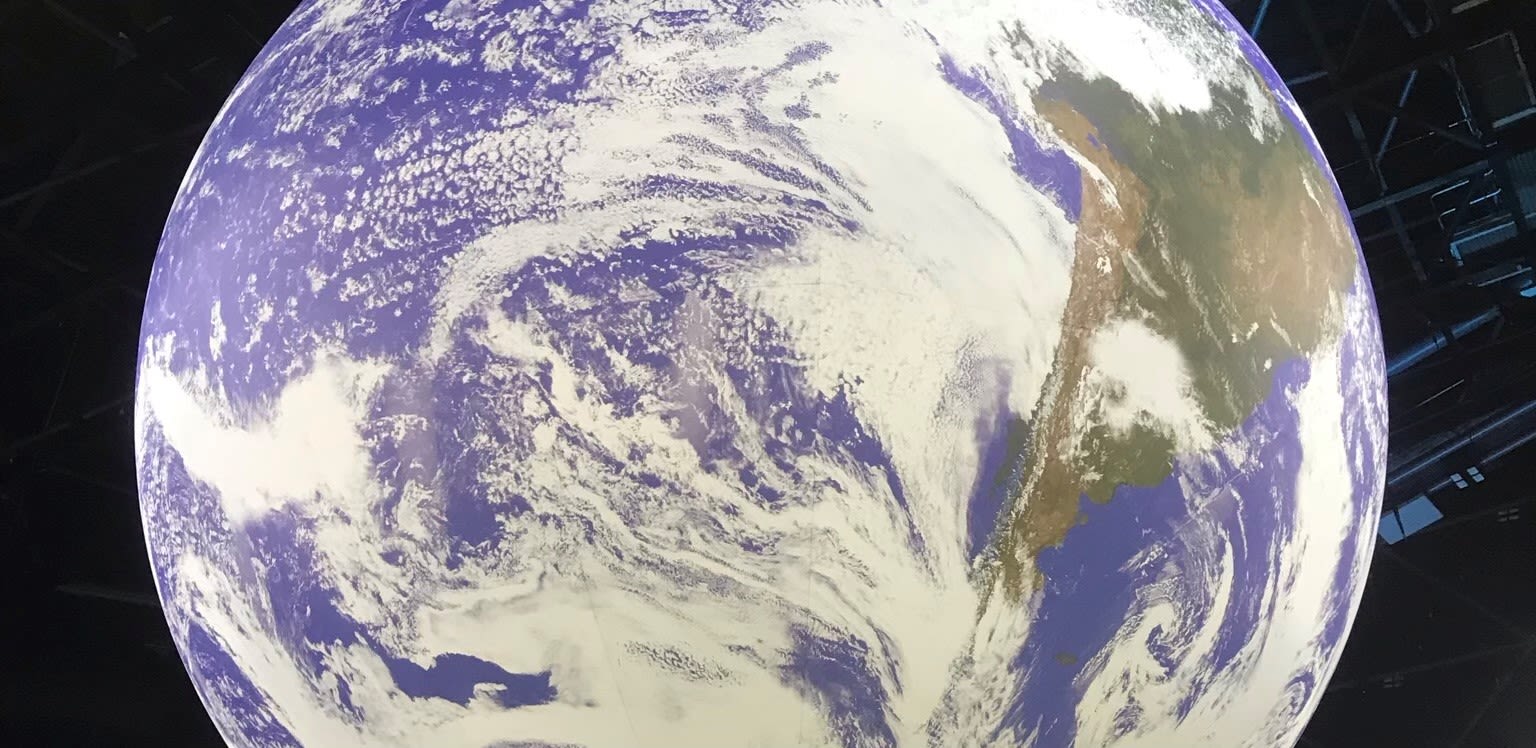
“Parliament must uphold its role to ensure checks and balances even when the world is threatened with climate change, a pandemic, democratic regression and populism.”
“We’re all engaged in the same thing which is essentially holding our government to account” said Philip Dunne MP, as he explained the remits of the UK’s parliamentary committees in his opening remarks. MPs on committees are able to ask “challenging questions” of government ministers because they are not part of the government.
Munaza Hassan from Pakistan shared this sentiment when she reminded the audience that “as parliamentarians we must work together and put an end to hollow promises.”
But how can parliaments measure whether climate promises are being kept?
Audience member and Chair of the House of Commons Liaison Committee Sir Bernard Jenkin suggested parliaments must agree on a basic set of metrics to scrutinise governments across the world in a consistent way.
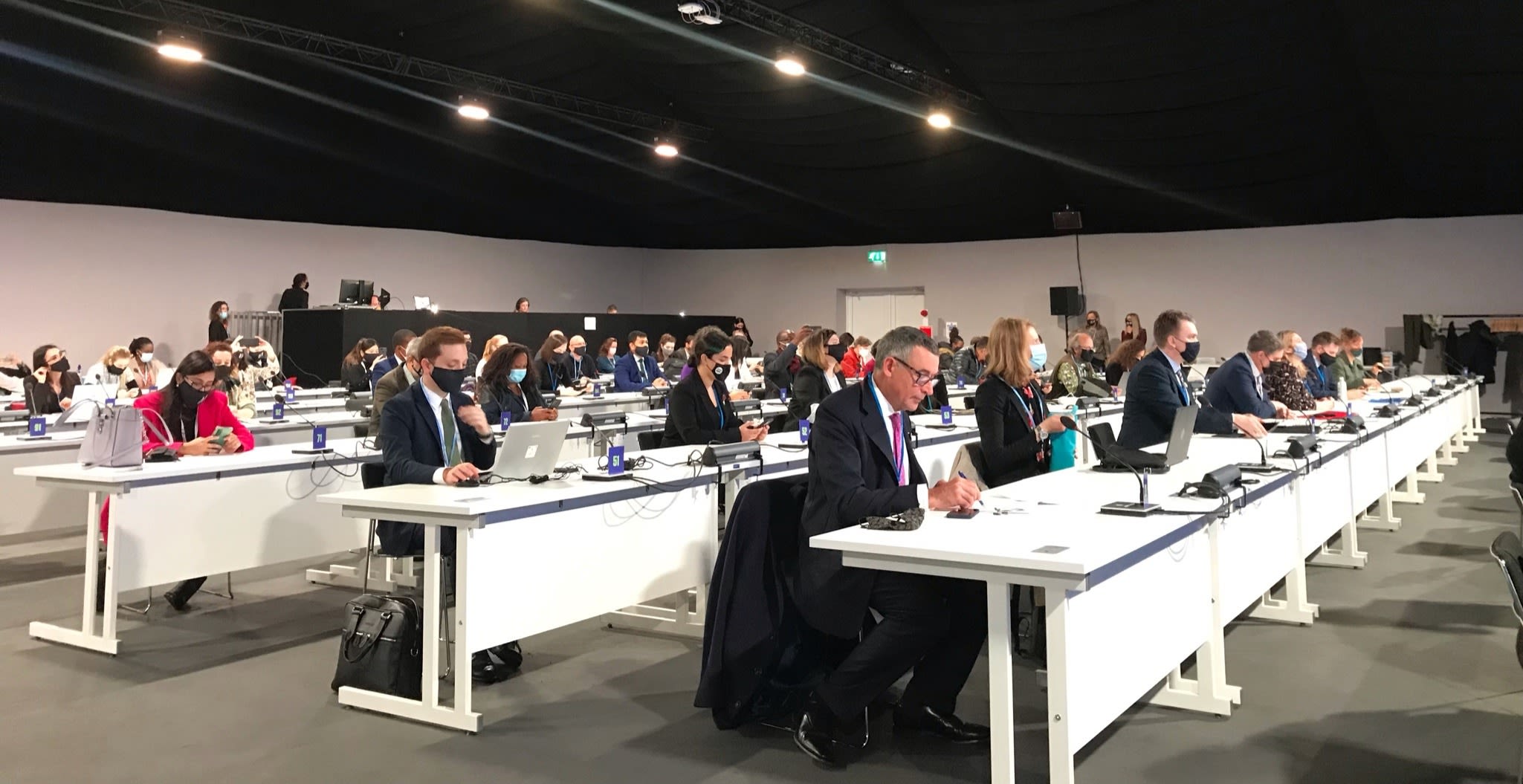
Over 100 COP26 participants filled Meeting Room 4 of Glasgow’s SEC centre
Over 100 COP26 participants filled Meeting Room 4 of Glasgow’s SEC centre
Philip Dunne was ‘very encouraged’ by the UN Secretary-General’s remarks at the COP26 opening ceremony that he intends to establish a set of standard international metrics for measuring progress of corporate commitments on net-zero.
Darren Jones MP, Chair of the Business, Energy and Industrial Strategy Committee, said that finalising the “Paris rulebook” is a key deliverable of COP26 and will make sure everyone is “singing from the same hymn sheet.”
The panel agreed more must be done to demand metrics from ministers, with Lawrence Songa MP, Chair of the Parliamentary Committee on Climate Change, Parliament of Uganda, suggesting a requirement for annual reporting to parliament.
3. A channel for voices

A recurring theme in the discussion was that parliament was important in providing a channel for voices, communities, civil society and experts on climate change issues.
Dr Fadli Zon said it’s important that green policies are grounded in public support. He highlighted citizens’ assemblies as a credible way of doing this.
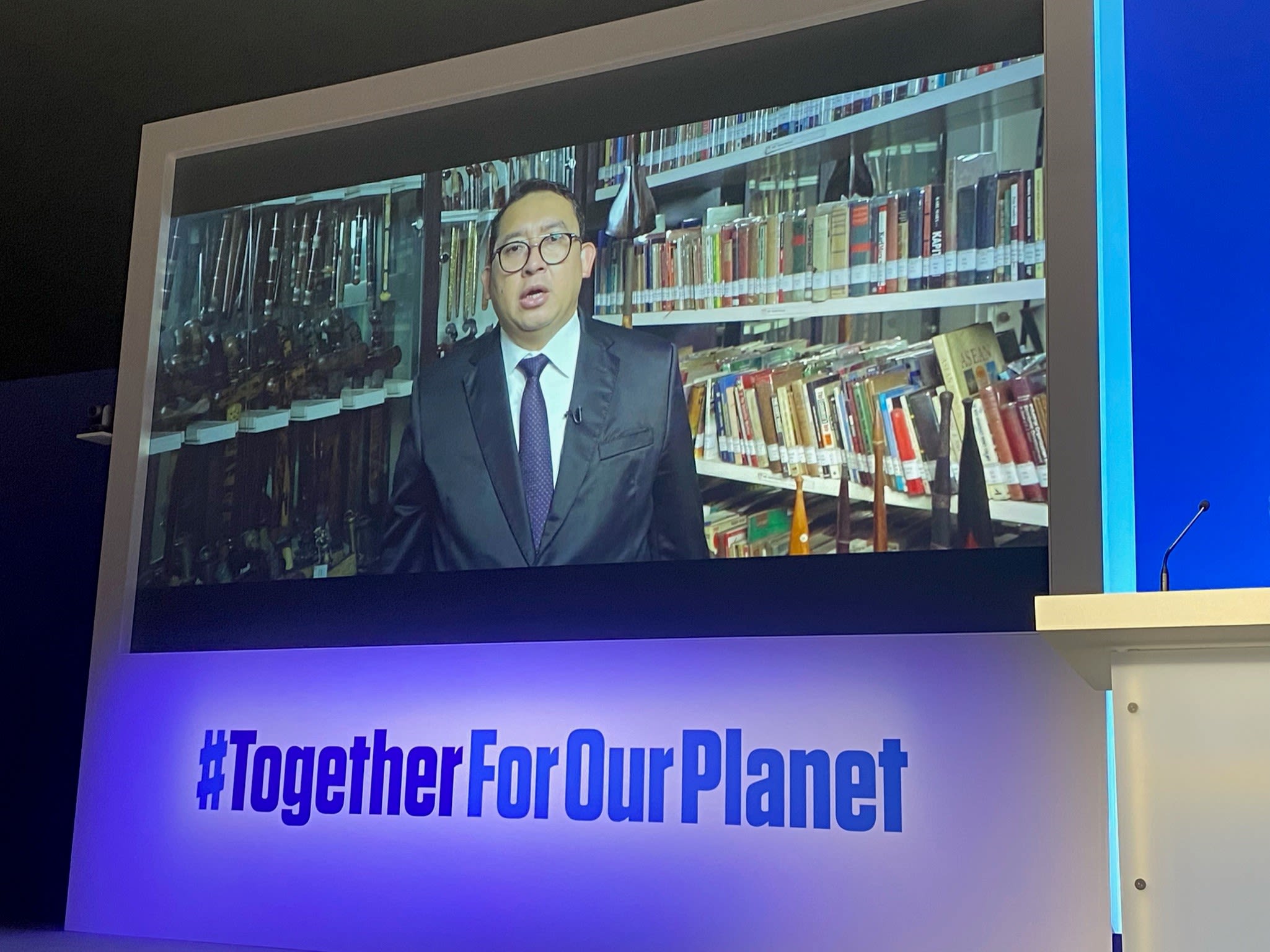
Dr Fadli Zon, Chair of the Committee for the Inter-Parliamentary Cooperation, House of Representatives of Indonesia, speaking to the audience via a recorded video
Dr Fadli Zon, Chair of the Committee for the Inter-Parliamentary Cooperation, House of Representatives of Indonesia, speaking to the audience via a recorded video
Audience member Steve Brine MP agreed that combining scrutiny functions with popular agreement is the “holy grail” of committee work. Though Darren Jones MP felt there was more to be done to ensure the public see committees as a route to engaging in the scrutiny and delivery of climate objectives.
The power of public engagement and citizens’ assemblies was discussed at a Climate Outreach event later in the day, where Darren Jones MP chaired a panel that explored examples of successful engagement on climate action from around the world. This included his experience as the Chair of the House of Commons BEIS Committee of supporting the establishment of the UK’s first citizens’ assembly on climate change.
4. Proper coordination

When it comes to action on climate change, there are a lot of climate change protocols, treaties and conventions said Lawrence Songa. The Kyoto Protocol, Paris Agreement, UN Convention to Combat Desertification and the Montreal Protocol on ozone layer depletion are just few that the Ugandan government are focused on.
Delegates heard how parliament and committees can play an important part in bringing together all sectors and making sure there is proper coordination across government.
How are parliaments worldwide, including @UKParliament, involved in scrutinising policy on climate and nature?
— Environmental Audit Committee (@CommonsEAC) November 5, 2021
MPs from our committee are at #COP26 in Glasgow. Watch them live at 11am at https://t.co/3hbaFRuOwZ 👈 pic.twitter.com/8Fgqr7Z9eV
‘Siloed’ working and ‘passing the buck’
Dr Fadli Zon, mentioned in his speech that his committee encountered a siloed approach in parliament to environmental and climate change policy.
This is a concern audience member and Procedure Committee Chair Karen Bradley MP echoed as she asked the panel how parliaments can make sure that governments take ownership of the issue rather than “passing the buck between departments.”

The panel took questions from the audience. From left to right: Steve Brine MP, Pegah, Bernard Jenkin MP, Karen Bradley MP
The panel took questions from the audience. From left to right: Steve Brine MP, Pegah, Bernard Jenkin MP, Karen Bradley MP
A bigger challenge than the pandemic
Philip Dunne said tackling climate change is a bigger challenge than coping with a pandemic. He told the audience that most governments reengineered themselves to deal with the Covid-19 pandemic, but parliaments now have a big role in helping push governments to do the same in response to climate change challenges.
5. Global teamwork

Parliaments can play a crucial role in the global teamwork that is required to tackle the climate crisis said Darren Jones MP. The spirit of collaboration and the willingness to learn from international exemplars was evident throughout the event.
Munaza Hassan MNA invited parliamentarians to visit Pakistan to learn how they have restored ecosystems by systematically planting trees through their 10 billion tree tsunami initiative.
Lawrence Songa MP emphasised how his committee in Uganda can learn from the UK’s experience of scrutinising, passing, and implementing the Climate Change Act 2008.
As the event drew to a close, Darren Jones MP, called for “global scrutiny”, as the climate promises made by governments affect not just their constituents but the whole world. He left parliamentarians with an action for 2022: to collaborate more effectively internationally.
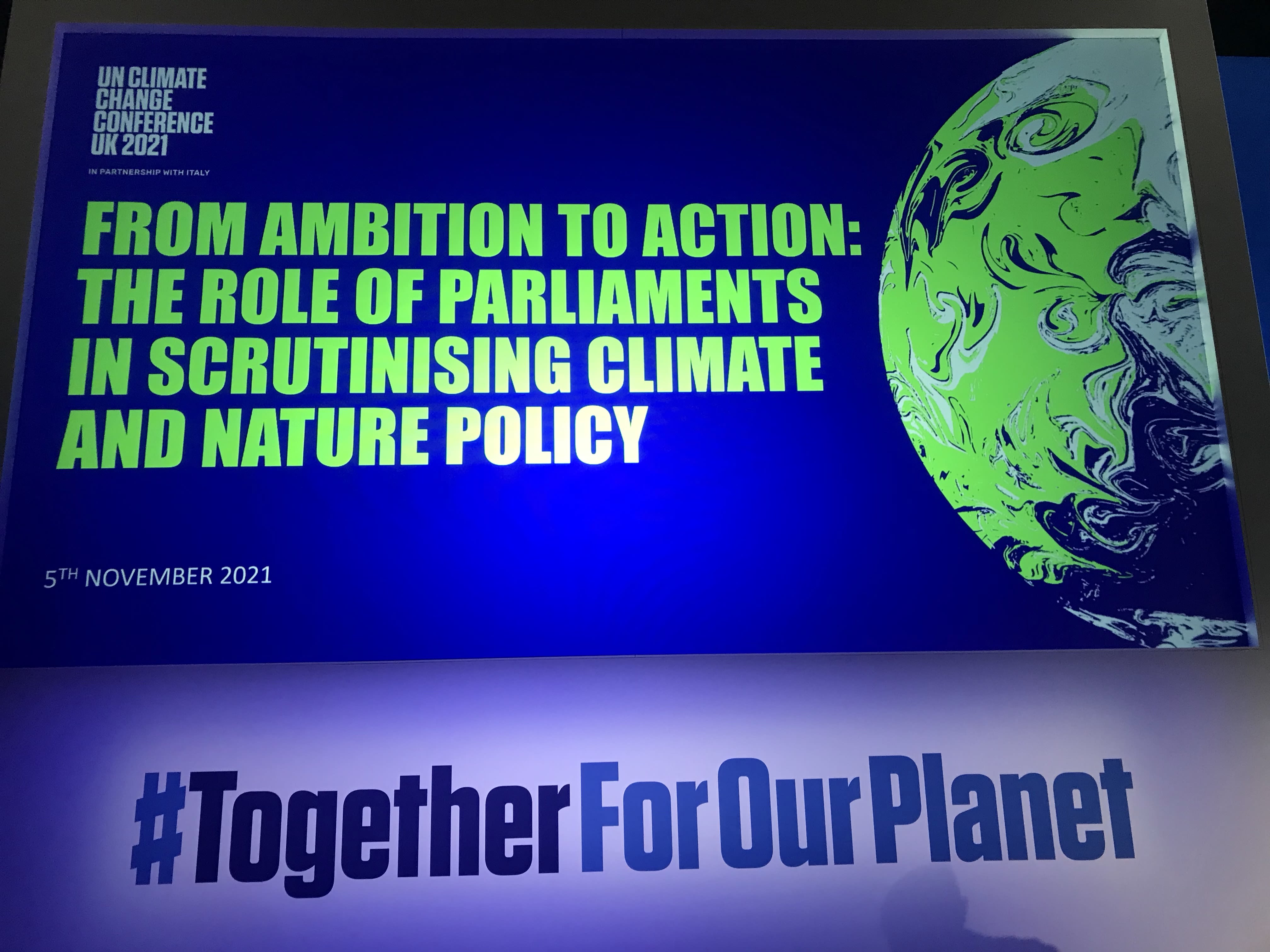
Find out more about parliamentary committees
The event was staged as part of the UK Presidency’s programme of events. It was hosted by the House of Commons Environmental Audit and Business, Energy and Industrial Strategy Committees, and the House of Lords Environment and Climate Change Committee. Guest speakers were from parliaments in Uganda, Pakistan and Indonesia.
Find out how you can get involved in shaping climate change policy in UK Parliament.